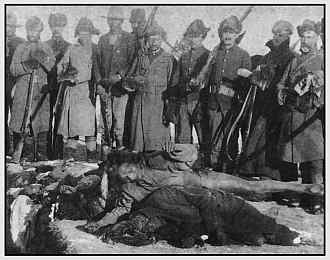But in spite of their obvious role in the widespread elimination of countless Indians over the past few centuries, Low said it may be difficult for Americans to see the truth amongst the bloodshed, be it that of Indians or other races.
"Americans don't want to think about themselves or their ancestors partaking in genocide," Low said.
However, Low emphasized that for America, hope lies within the spreading of truth and knowledge about the tragedies that befell his ancestors.
"I don't believe there can be any healing without information," Low said.
In terms of America's role in stopping genocides in other countries, Greg Bedian, a member of the Armenian National Committee and co-founder of the Genocide Education Network of Illinois, said that one of the keys to stopping a massive genocide is to see where one is brewing early, and then to act quickly. He cited that the Rwandan genocide took place in only 100 days.
"This has to be done prior to the catastrophe starting, not after it's already begun," Bedian said.
However, the panel said the true power may not lie with government, but with individuals. "Don't be silent," Brown said. "Because that's what happened in Europe. People were silent."
It's a good argument for recalling the genocide against Indians again and again. Until every American can recite chapter and verse of this aspect of US history, we should keep discussing it. Then we'll be less likely to let it happen again.


3 comments:
"There is an answer to the doctor's question. All the Dachaus must remain standing. The Dachaus, the Belsens, the Buchenwalds, the Auschwitzes - all of them. They must remain standing because they are a monument to a moment in time when some men decided to turn the Earth into a graveyard. Into it they shoveled all of their reason, their logic, their knowledge, but worst of all, their conscience. And the moment we forget this, the moment we cease to be haunted by its remembrance, then we become the gravediggers. Something to dwell on and to remember, not only in the Twilight Zone but wherever men walk God's Earth."
-Rod Serling (from the episode death's head revisited)
It would be interesting to ask Americans who deny the genocide here about the genocide in Europe. Would they tell Jewish survivors of the Holocaust to "stop playing the victim card" and "get over it"?
Most likely; part of the reason that I dislike the 'get over it' cliche is that it implies that genocide should be forgotten.
Post a Comment